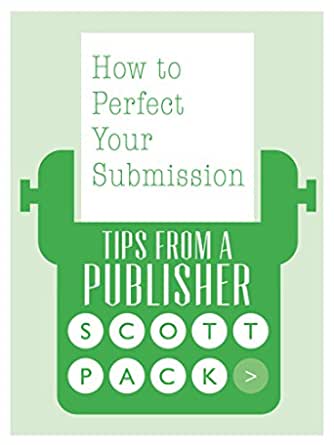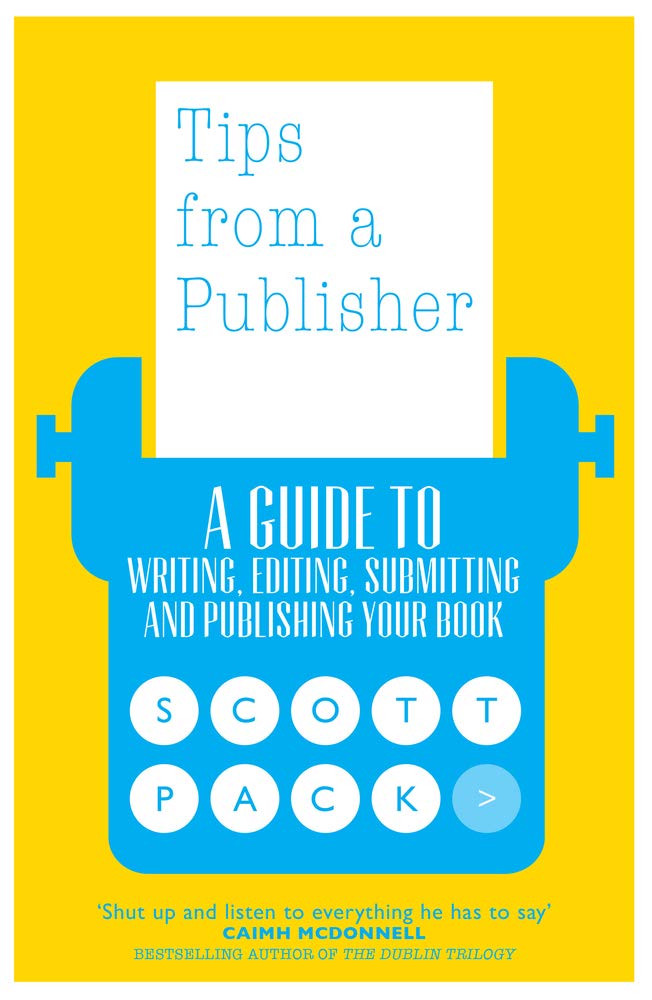You’ll notice this posted under the Publishers topic rather than the Submissions topic. That’s because going out “On Submission to Publishers” is such a different beast than just subbing a short story to Submittable. There’s so much more at stake. Plus, it’s totally driven by publishers: the gatekeepers to your publishing dreams. Forget any semblance of control; being out on submission (or “on sub”) is a wild experience, and one that’s totally out of your hands.
The secret of being “on sub”
For reasons unknown, being out on sub is not something that’s commonly spoken about by writers. It’s like this great, mystical process that is totally overshadowed by the importance of securing a literary agent. And yet, being on submission is how book deals happen! It’s the end game to getting your book published! So why aren’t we talking about it more? My main theory is because money is involved, and it’s uncouth to talk about money. However, a more probable reason is that other editors shouldn’t be able to easily locate who else is reading it. It sort of ruins the game – much like you wouldn’t tell one company at a job interview all of the other companies you’re interviewing with. So it’s fine to say you’re out on sub, but not to say who’s reading it. Publishing is an incestuous industry, and news travels fast.
Mentally prepare yourself
Having personally been out on submission once, and now about to go out for a second time, I can tell you, it is truly agonizing. The waiting. The not knowing. The total lack of control. At this point, there’s no rhyme or reason to doubt that your book is good enough to be published, and yet, this is inevitably what you start doing: doubting yourself. Writer imposter syndrome inevitably creeps in. Personally, I didn’t sleep well for the first couple of weeks. And the timeline – more on that below – can be completely bananas. Staying sane, and having an excellent support network around you (plus chocolate chip cookies and/or Ben & Jerry’s) as you navigate being on submission to publishers is crucial. So, buckle up. Nothing quite compares to this journey, and every author’s journey is unique.
What does it mean to be on submission to publishers?
If you have reached the on submission stage: congratulations. You’ve signed with a literary agent, been back and forth several times on your manuscript, editing and polishing it to bulletproof perfection. Your literary agent will have worked with you to give your manuscript the best possible chance of success, as she will know better than anyone that it all comes down to this: your shot at a traditional book deal. In other words, your baby is about to be sent out to acquisitions editors at publishing houses who are simply going to LOVE it.
What happens next?
Your literary agent will prepare a pitch letter to send to editors within publishing houses and imprints. She may even make a few phone calls, generating hype around the “launch”. And, in some cases, she may even get a few book blurbs before she takes it out, especially if you happen to know any big-named authors who are willing to vouch for you. Essentially, she will do whatever she can to hype it up, making it irresistible to editors.
Your literary agent can only send to one person per imprint, so she’ll likely spend a while refining her list, ensuring that she’s aligning your manuscript to an editor’s tastes. And, by the way, if you’re still unconvinced that you need a literary agent to secure a book deal, one of the best things about agents is that it’s their job to find out exactly what editors are looking for and which genres they represent. They’re extremely adept at literary matchmaking. Their 15% cut is SO worth it.
Once your literary agent has her pitch letter and her list (she may or may not share either of these with you, or she may even ask for your input in writing her pitch letter, which will look eerily similar to your original query letter), she will send your manuscript out into the world.
How many editors? How many rounds?
It totally depends. Some literary agents send to all editors at once, hoping to drive up interest with a “big bang” effect. Some will send to a handful, wait for feedback, then move on to the next few. This is known as sending out in “rounds”. There are approximately 40 editors in the total publishing pool (one per imprint) where an agent can send your manuscript before the submission process is exhausted, although some genres like sci-fi, or specific markets like the U.K. have far fewer editors available, making it much riskier and significantly more difficult to land a book deal. Oh, and your one, single editor at an imprint? They have a team. They may pass on your manuscript to their assistant, intern, or in-house editorial staff for a read before they even consider it.
How long does the process take?
Don’t hate me, but there’s no fixed time. It’s publishing! It’s not unheard of for books to sell within a week, or even – gasp – overnight. Or it can take months. Or a year. For anything that’s been dragging on between eighteen months and two years, it might be time to consider shelving it. In general, the longer your book is out on submission to publishers, the less likely it is to sell. However – it does happen. And especially during COVID times, when editors have been taking far longer to respond. And don’t expect to hear back from each round along the same timeline, either. Some passes will trickle in, some editors will take months to even open the email containing your precious manuscript, and some may even ghost your agent. It’s just the way it goes.
What does a pass mean?
It means that an editor has rejected your book – either with a “sorry, not for me,” or a more thoughtful response, highlighting what they admired about your work. Perhaps it wasn’t quite right for their list, or they just acquired something very similar. Perhaps they didn’t think they could persuade their team. Perhaps they couldn’t envisage where it would sit on shelves. Perhaps they ate a bad burrito. There’s no rhyme or reason for a pass. However, once an editor passes, your agent can’t send it to someone else at the same imprint. That’s why the submission process needs to be strategic and thoughtful.
Possible scenarios
Scenario 1: The editor call
Your literary agent tells you that an editor loves your book. They want to set up a call with you. What could this call possibly mean? How should you prepare? It could be that the editor just wants to sound you out and check that you aren’t crazy, much like a traditional HR interview. Or it could be that the editor wants to ensure you are open to their editorial vision, and are up for doing the necessary work and edits required to bring your book in line with that. Or it could be that they want the dreaded “revise and resubmit” (R&R) – more on that below.
Scenario 2: The R&R
Your book needs a facelift before the editor can make an offer. You scurry away and make their requested changes, which could be a light touch, or a massive overhaul. Or, you choose to ignore the R&R if you don’t feel that those changes will benefit your manuscript. By doing this, you are walking away from this editor and this publishing house, possibly forever. Fun fact: R&Rs often don’t result in an offer. So only do one if a) you think it’s going to benefit your book, and/or b) you really love this editor/imprint and can’t bear the thought of working with anyone else.
Scenario 3: Acquisitions
Now it’s time for the acquisitions meeting. Wait – convincing one editor isn’t enough? Actually, no. They now have to sell it in to her entire team, present a business case based on hypothetical sales figures, and convince marketing, sales, and PR teams that they all should say yes to this book. The ultimate heartbreak is having one editor love your book, getting it all the way to submissions, and then the editorial board saying no. (Actually, the ultimate heartbreak is getting a deal and then the deal falling through after you’ve signed your contract, but I don’t have the stomach to write about that here.)
Possible outcomes
Outcome 1: The pre-empt
An editor wants to get rid of the other editors reading, so they make a tasty offer known as a pre-empt in a bid to avoid your book selling to another publishing house, or being taken to auction. While pre-empts sound like the dream scenario (they are essentially guaranteeing you an offer), you still need to consider whether the editor is the right fit, if this is the publisher you want, and if the offer is what you really want. They also come with a deadline, during which time your literary agent will frantically nudge the other editors left in the round to reveal their hand. If you have multiple interested parties, you can turn down the pre-empt and your agent will take it to auction. Exciting.
Outcome 2: The auction
This, for many, is a dream scenario. It involves multiple houses bidding on your book (these days virtually), and the highest bidder wins. This is a bit of a risky strategy, since you don’t get to pick the house, and although it usually results in a higher advance, it doesn’t always.
Outcome 4: The two- or multi-book deal
You may be offered a two- or multi-book deal, which locks you into that specific house. It’s good for “job security”, but usually results in a lower advance per book when you do the math. Plus, you could have a really bad experience publishing your first one, but you’re legally obliged to write a second for the house. On the other hand: you’re guaranteed to have multiple published books.
Outcome 5: The play for foreign rights
Most North American publishers will try to secure world rights. However, if there is a lot of buzz around your book, your agent will make a power play to keep rights, for her to sell separately to different houses around the world. More houses = more money = more power for the writer.
Outcome 6: The offer!
You’ve whittled through all the various scenarios on your unique journey. You get…an offer! But the offer isn’t at all what you expected. Or, it’s beyond your wildest expectations. Either way, your agent will go back and forth for several more days and weeks negotiating. And then you have to wait for your contract to get drawn up and pushed through legal review, ensuring parity for both parties. While you might be dreaming of announcing your book deal to family, friends, and formally on Publisher’s Marketplace, the truth is that it’s a long old road ahead, regardless of the offer.
Outcome 7: Your book doesn’t sell
This is the sad but inevitable outcome for many books that go out on submission to publishers, especially debuts. Often, your “first” book is never your first. The one that actually sells is your…seventh? And then you sell your backlist after the fact. Of course, there are those unicorns out there who sell their debuts for huge advances, but then the pressure’s on for the future. Not selling while out on submission is a lot more common than you think. It doesn’t mean your book’s bad; it means the market wasn’t ready, or the timing wasn’t quite right, or your book didn’t match up to an editor’s tastes. Many authors don’t sell and then go on to have lucrative careers. As with all publishing, it’s about luck, timing, and perseverance.
Further reading
I wouldn’t have survived being out on submission to publishers without two excellent resources: author Kate Dylan’s Sub Stories, and the On Submission Facebook group. These are safe spaces where you can read about other aspiring authors’ journeys to publication, and remind yourself that while being on sub can feel lonely, you’re never alone.
Recommended reading
Here at Aspiring Author, we love recommending bestsellers and fawning over hot new releases. On this real time recommended reading list, you will find a list of top rated books on the publishing industry, craft, and other books to help you elevate your writing career.












Natalie,
Thank you so much for this excellent article. On the first run-through, I thought, ‘odd, this woman’s been living in my head’. Then I realized that authors about to go out ‘on sub’ are pack animals, blighted by the same too-short fingernails.
You’re most welcome, Lynette.
Great article. Thank you so much for sharing your expertise.